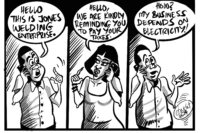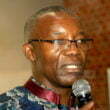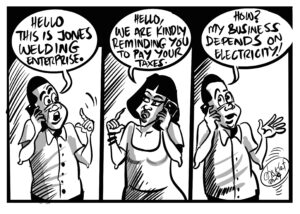Justice Minister Given Lubinda says the continued labelling of Zambia as being corrupt is hurting ordinary citizens more than the people who have been labelled as corrupt.
In an interview in Lusaka, Lubinda argued that it was not fair for stakeholders to fuel unnecessary stigmatization of Zambia as being a corrupt nation.
He maintained that many people had been called corrupt, yet no hard evidence had so far been furnished to prove them being corrupt.
Recently, Transparency International Zambia (TIZ) chapter president Rueben Lifuka said corruption was getting worse and that the country could no longer pretend that all was well.
Lifuka’s remarks came in the wake of Zambia dropping by one point on the TIZ Corruption Perceptions Index (CPI) from 35 to 34 out of 100.
“Can you imagine how many people have been called corrupt in the country? Many people have been called corrupt, but when you follow their allegations, you find nothing! It is that misinformation that is creating that perception. As a country, we’ll have to guard ourselves from such unwarranted labelling of each other as corrupt because the effect is to create an impression that as though the country is truly corrupt. In the end who is suffering? It is not the people who have been labelled corrupt in an unwarranted manner, it is the whole country that suffers. I think we have a very big role in the country to make sure that we don’t fuel this unnecessary stigmatization of ourselves as a corrupt nation. It is not fair, it is not right!” Lubinda said.
He also argued that the TIZ’s CPI was based on people’s perception on what they felt about the level corruption in the country.
“The information released by TI is called Corruption Perception Index; how that Index is arrived at is from the perception; so researchers go in a country and ask citizens, ‘have you been asked to pay a bribe?’ ‘How many times have you been asked to pay a bribe this year?’ How do you rank corruption in a country?’ ‘How many times has corruption being reported?’ ‘How many cases have you heard in court,’ and so on and so forth. It is a Perception Index. Perceptions are arrived at through a Perception Index of interviewing people and collecting data. In a country, such as Zambia, where people can just wake up and just say, ‘Nkomesha is corrupt! Nkomesha has stolen!’ And this newspaper writes that, ‘Lubinda has said that Nkomesha is corrupt.’ Don’t you think that is what is itemizing the perception of Zambia as a corrupt country?” asked Lubinda.
“As you read those indices, you should be aware of what creates that impression. Some countries don’t have people calling themselves ‘corrupt’ and when you go and do a Corruption Perception (Index), everybody will be saying, ‘we don’t even know what you are talking about because no one talks about it.’ In Zambia, the liberty is that Zambians are enjoying where they can just wake up and call anyone corrupt and they go scot-free with it; that is what is showing in that perception. If you go to Scandinavian countries, you talk about corruption, people will ask you, ‘what are you talking about?’…We should measure this (index report) also with the number of cases that have been convicted; how many people were convicted of corruption?”













2 Responses
The perceptions hv been created by your boss who pays a blind to corruption taking place in his Govt. There has been many instances of public conflicts of interest & he has done nothing! The PS & Minister at Defense as an example hv never been publicly reprimanded sending a wrong signal to the public. Even you Lubinda, you are corrupt or you are not Zambian! At one time I thought you would make a good head of state but bill#10 has corrupted you.!Hw do you propose such an absurd amend to our sacred document! The beating in K reveals it all. Your fellow Ministers are suppose to defend the public when abnormal BOQs are issued by civil servants. But instead you are happy to proceed as though the public are fools who will not detect such fraud. It means these Ministers are also in it. All above, and many other issues of public concern over a long period of time, there has been no action by ba Kateka against corruption. Over time the TIZ perception index indicates to the world that the Govt of ECL is a wrong Govt to preside over our public affairs. Above all ECL is not a listening President and he pretends. That’s a very bad quality in a President
I think we should be positive!
We are among the least corrupt out of the 70 most corrupt countries in the world!